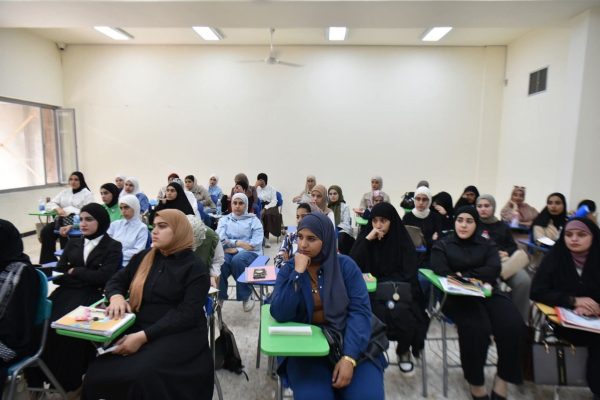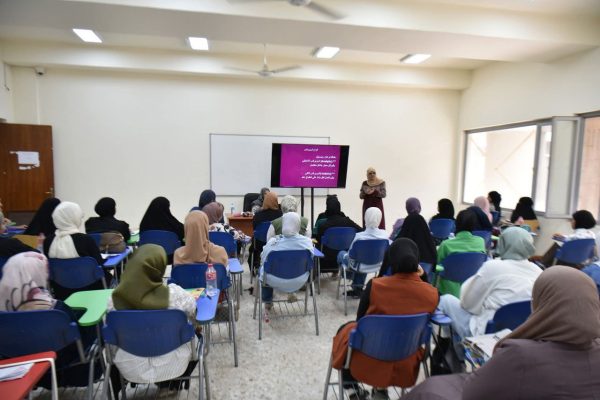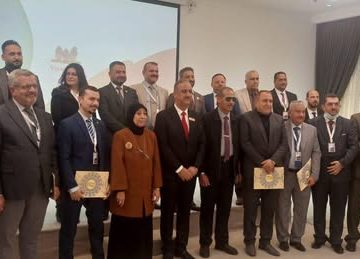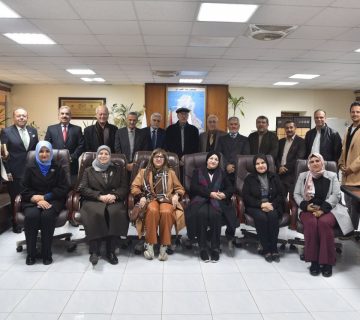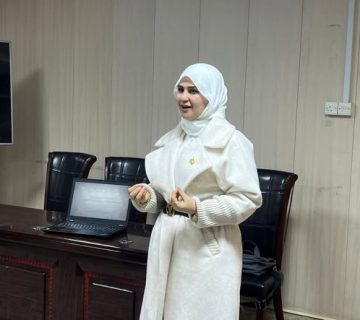Under the patronage of the Dean of the College of Science for Women, Professor Dr. Sameera Naji Khdim, the Continuing Education Unit organized a workshop entitled “The Use of Rubrics with Students in Task Implementation”, presented by Dr. Bus’ad Maher Muheil and Dr. Asmaa Mahdi Saleh.The aim of this activity was to highlight the importance of implementing the Rubrics system to improve the quality of academic assessment, establish principles of transparency and fairness in evaluating student performance, and enhance students’ understanding of tasks, requirements, and the mechanisms for their completion.Rubrics are considered among the most effective assessment tools, as they rely on clearly defined criteria to evaluate students’ performance with a high degree of accuracy, quality, and precision. This approach clarifies educational expectations and provides precise feedback, thereby assisting students in improving their performance and directing their efforts systematically toward achieving educational objectives. The rubrics incorporate various academic aspects of tasks, such as presentation quality, organization of ideas, content accuracy, and analytical and inferential abilities.Moreover, students were informed of these criteria in advance to ensure clarity of expectations, which positively impacted their level of engagement and the quality of their completed tasks. This system also facilitated the grading process for instructors, particularly in group projects, and enabled them to provide more accurate and beneficial feedback — all of which contribute to academic excellence and ensure high-quality educational outcomes.This workshop aligns with the fourth goal of the Sustainable Development Goals (SDGs), which states: “Ensure inclusive and equitable quality education and promote lifelong learning opportunities for all.”
